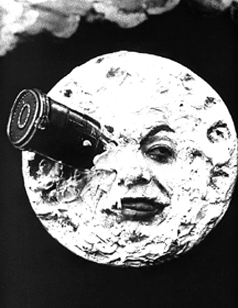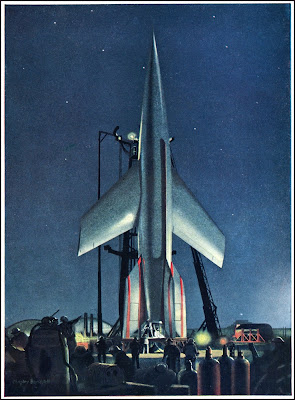E
exoscientist
Guest
I grew up in the 70's and started reading SF then. I liked reading then not only the current fiction but the SF of the early years like in the 30's and 40's. It seemed quaint though the stories from that period of the millionaires who hired the scientists to build or built themselves the rockets that allowed them to become the first men in space. In the 70's it seemed only the largest governments could afford to do this. Well maybe such iconoclastic millionaires won't be the first in space but it is becoming increasingly likely they will be able to produce their own space vehicles capable of taking passengers to orbit. I'm thinking of Richard Branson of Virgin Galactic, Elon Musk of SpaceX, Jeff Bezos of Blue Origin, John Carmack of Armadillo Aerospace, and some others.
What are some of the best stories of the early years of SF with this theme?
BTW, I'm of the opinion that the rapidly decreasing cost of lightweight composite materials will soon make possible single stage rockets of the kind Robert Heinlein and the other early guys used to write about:
Newsgroups: sci.space.policy, sci.astro, sci.physics
From: Robert Clark
Date: Fri, 27 Nov 2009 07:18:40 -0800 (PST)
Subject: Re: A kerosene-fueled X-33 as a single stage to orbit vehicle.
http://groups.google.com/group/sci.spac ... %3Fhl%3Den
Newsgroups: sci.space.policy, sci.astro, sci.physics
From: Robert Clark
Date: Fri, 27 Nov 2009 08:15:23 -0800 (PST)
Subject: Re: A kerosene-fueled X-33 as a single stage to orbit vehicle.
http://groups.google.com/group/sci.spac ... %3Fhl%3Den
Newsgroups: sci.space.policy, sci.astro, sci.physics
From: Robert Clark
Date: Sat, 28 Nov 2009 08:24:23 -0800 (PST)
Subject: Re: A kerosene-fueled X-33 as a single stage to orbit vehicle.
http://groups.google.com/group/sci.spac ... %3Fhl%3Den
Bob Clark
What are some of the best stories of the early years of SF with this theme?
BTW, I'm of the opinion that the rapidly decreasing cost of lightweight composite materials will soon make possible single stage rockets of the kind Robert Heinlein and the other early guys used to write about:
Newsgroups: sci.space.policy, sci.astro, sci.physics
From: Robert Clark
Date: Fri, 27 Nov 2009 07:18:40 -0800 (PST)
Subject: Re: A kerosene-fueled X-33 as a single stage to orbit vehicle.
http://groups.google.com/group/sci.spac ... %3Fhl%3Den
Newsgroups: sci.space.policy, sci.astro, sci.physics
From: Robert Clark
Date: Fri, 27 Nov 2009 08:15:23 -0800 (PST)
Subject: Re: A kerosene-fueled X-33 as a single stage to orbit vehicle.
http://groups.google.com/group/sci.spac ... %3Fhl%3Den
Newsgroups: sci.space.policy, sci.astro, sci.physics
From: Robert Clark
Date: Sat, 28 Nov 2009 08:24:23 -0800 (PST)
Subject: Re: A kerosene-fueled X-33 as a single stage to orbit vehicle.
http://groups.google.com/group/sci.spac ... %3Fhl%3Den
Bob Clark





